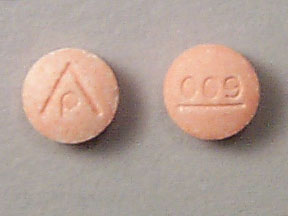
Aspirin Low Strength Coupons & Savings Card – Discount Prices from $9.93
Brand for: Aspirin
Aspirin is used to reduce fever and relieve mild to moderate pain from conditions such as muscle aches, toothaches, common cold, and headaches. It may also be used to reduce pain and swelling in conditions such as arthritis. Aspirin is known as a salicylate and a nonsteroidal anti-inflammatory drug (NSAID). It works by blocking a certain natural substance in your body to reduce pain and swelling. Consult your doctor before giving this drug to a child younger than 12 years. It is very important to keep this and all medication out of the reach of children. Aspirin is a common cause of poisoning in children. () Your doctor may direct you to take a low dose of aspirin to prevent blood clots. This effect reduces the risk of stroke and heart attack. If you have recently had surgery on clogged arteries (such as bypass surgery, carotid endarterectomy, coronary stent), your doctor may direct you to use aspirin in low doses as a "blood thinner" to prevent blood clots. Aspirin prevents blood clots by stopping certain blood cells (platelets) from clumping together.
Our Aspirin Low Strength coupons are free to use. You can print the coupon, email it to yourself, or receive the Aspirin Low Strength coupon via text message. To get your free discount, show the pharmacist your Aspirin Low Strength savings card which has the discounted coupon price. Use our filters below to edit the prescription box to match your needs. The Aspirin Low Strength prices will update based on your prescription needs. Above our Aspirin Low Strength coupons, you can change the location to see pharmacy prices in other areas. Our prescription discount card will update online with the specific pharmacy costs associated with your edits. Be sure to text, email, or print the Aspirin Low Strength savings card code that you need after editing the prescription box and location field. Show the discount card to your pharmacist before paying.
My prescription
Edit
81MG, Aspirin (90 Tablet Chewables)
Select pharmacy

Walgreens
$9.93
COUPON PRICE
Albertsons
$17.34
COUPON PRICEAspirin Low Strength savings card
Show this card to your pharmacist
Walgreens
$9.93
BIN
ID
PCN
GRP
015995
LHKRC499178
GDC
DR33
Powered by
Aspirin is used to reduce fever and relieve mild to moderate pain from conditions such as muscle aches, toothaches, common cold, and headaches. It may also be used to reduce pain and swelling in conditions such as arthritis. Aspirin is known as a salicylate and a nonsteroidal anti-inflammatory drug (NSAID). It works by blocking a certain natural substance in your body to reduce pain and swelling. Consult your doctor before giving this drug to a child younger than 12 years. It is very important to keep this and all medication out of the reach of children. Aspirin is a common cause of poisoning in children. () Your doctor may direct you to take a low dose of aspirin to prevent blood clots. This effect reduces the risk of stroke and heart attack. If you have recently had surgery on clogged arteries (such as bypass surgery, carotid endarterectomy, coronary stent), your doctor may direct you to use aspirin in low doses as a "blood thinner" to prevent blood clots. Aspirin prevents blood clots by stopping certain blood cells (platelets) from clumping together.
Our Aspirin Low Strength coupons are free to use. You can print the coupon, email it to yourself, or receive the Aspirin Low Strength coupon via text message. To get your free discount, show the pharmacist your Aspirin Low Strength savings card which has the discounted coupon price. Use our filters below to edit the prescription box to match your needs. The Aspirin Low Strength prices will update based on your prescription needs. Above our Aspirin Low Strength coupons, you can change the location to see pharmacy prices in other areas. Our prescription discount card will update online with the specific pharmacy costs associated with your edits. Be sure to text, email, or print the Aspirin Low Strength savings card code that you need after editing the prescription box and location field. Show the discount card to your pharmacist before paying.
Aspirin Low Strength FAQs
Using the SaveHealth discount card, what is the price of Aspirin Low Strength without insurance?
Using the SaveHealth discount card, the price of Aspirin Low Strength without insurance is $9.93.
What is the price of Aspirin Low Strength at Walgreens?
The price of Aspirin Low Strength at Walgreens is $9.93.
